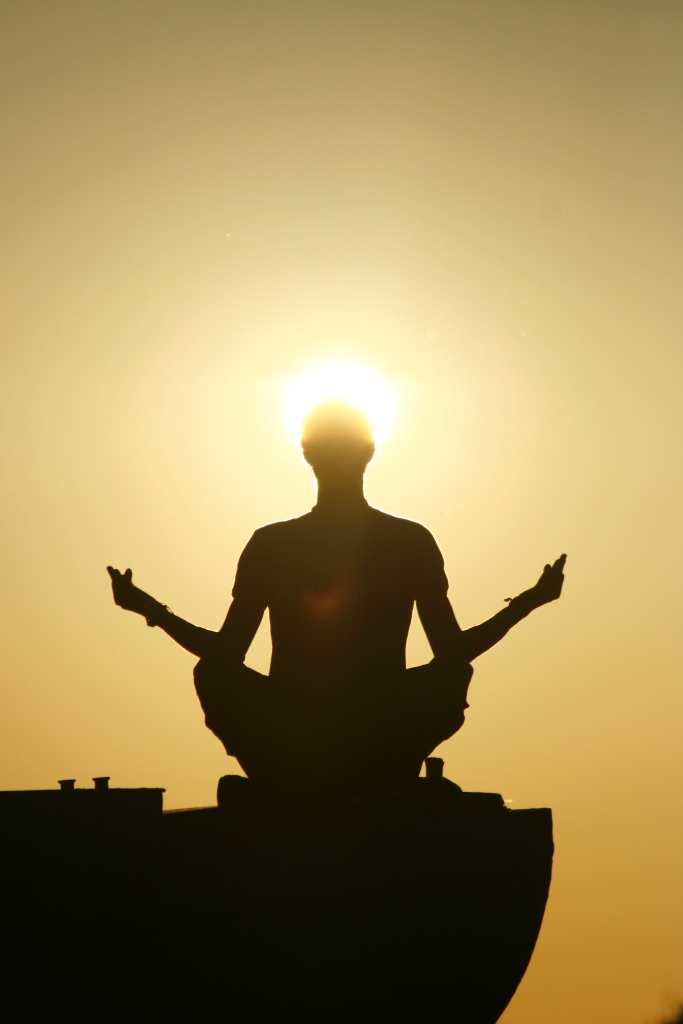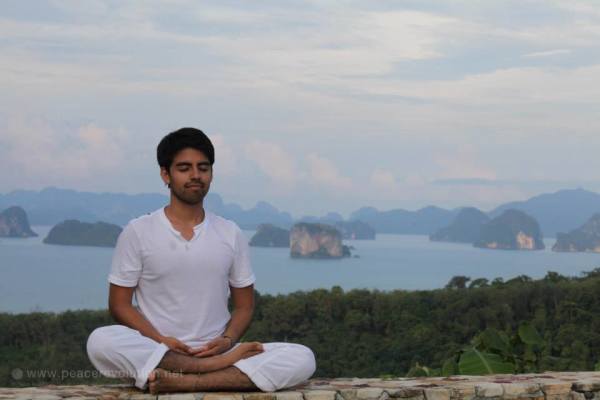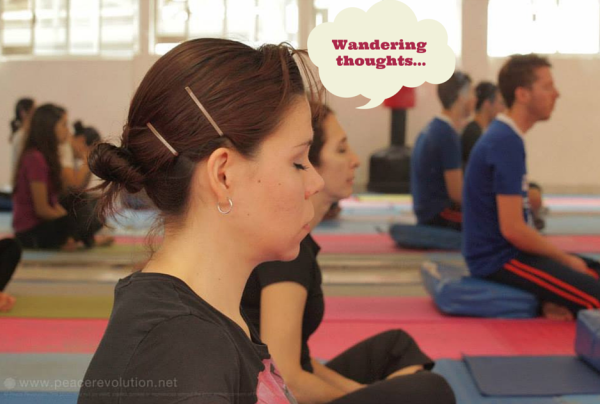Have you ever imagined meditation to be something complicated and possible only with lots of efforts? Probably Google and the cinematographic depiction of meditation postures might have had something to do with that. Firstly, let’s set something clear: meditation is not about closing our eyes and not having any thoughts. Many people asked, “So, how do you do not to think anymore?”. We are human and the process of thinking still goes on during the meditative state. Meditation actually helps us to focus on one thought at a time and let go of the background noise made by all the other thoughts “Have I fed the fish?”, ”What should I have for lunch?, “What if I don’t sign that contract tomorrow?”.
So, sorry to disappoint you: this article will not teach you how to not have thoughts anymore. You will learn, though, how to simply meditate, focus on the thoughts that are helpful, positive and supportive for your inner peace and joy to come out to light.
If that is something you’re in for, keep reading this article. I’ll guide you through seven easy steps about the practice of meditation. How about viewing the meditation practice as setting a meeting with yourself?
- Commit to making it work
Having a positive attitude smooths things. Like every beginning, starting to practice meditation regularly might be challenging. So, make a personal commitment just before taking on the practice: “I commit to practising ten minutes in the morning and ten minutes in the evening, everyday” or “I can do it” or “I’ll stick to it”. This commitment might come in handy when you feel like giving up or getting cold feet.

Image source: Free Images
- Set a time and a place
Meditation is all about focusing on one thought at a time. So, practicing in a calm environment helps you quite a deal concentrate and pay attention in a specific, non-judgemental way at your inner reality. Choose the moment of the day when you feel most calm, like in the morning, if you are an early bird, or just before going to sleep, so as to feel that you can now put everything aside and focus on your meditation. There is no perfect time; it is different from person to person, from lifestyle to lifestyle. Try to meditate at different times of the day. Choose the one that is most suitable for you.
The same goes for the place. Choose a spot that makes you feel good and comfortable. Some people meditate on the floor while others find it more pleasant sitting on a chair. Here again, it’s’ all up to you. Also, don’t forget about your favourite places, such as the garden or the bench in the park under the old oak tree. Anything goes, if it’s a peaceful surrounding, far from noises and crowds, allowing your mind to find some calmness and serenity. The environment should help you enjoy this quality time spent with the most wonderful person: yourself.
- Set the mood
The body and the mind are connected. Keep in mind that both of them need a peaceful set-up so as to enjoy the meditation to the fullest. Try to stretch a little bit your body, have a warm shower or a tasty cup of tea before meditation. This makes your body ready for the practice. The mind also understands that you are in preparing for a moment of relaxation.
Before starting to meditate, tell yourself “I am here and now. I am taking a moment to listen and connect to myself. Everything else can wait for a while.”

Image source: Free Images
- Find the good posture
Each of us is a oneness composed of the body and the mind. A good body posture encourages the mind to rest and relax more easily during the meditation session. Listen to your body and adjust your posture until you find a comfortable position. Place your right hand on your lap, above your left palm with the right index finger in continuation of the left thumb. You can now focus on your mind.

Image source: Peace Revolution
- Breathe in, breathe out
Focusing on the breath helps a great deal in calming the mind down. You might be familiar with the concept of the “Monkey Mind”. That’s exactly how our mind behaves: like a little monkey, jumping from one thought to another. Just place your attention on breathing and observe from afar other thoughts that might appear. Gradually, the mind will become calmer. Breathe in deeply and breathe out gently. With every deep breath, you take in, feel that your body fills in with positive energy. Every breath out releases the tensions, negativity and worries you might have inside.
- Let the meditation begin!
Let’s play a little game: try to close your eyes and think of a little sun or a star inside your body. This is a what we call a “meditation object”. Can you do that? You can use this method to still your mind. If not, just focus on repeating an empowering phrase such as “I am happy!” or a phrase that gives you a soothing sensation like “clear and bright”.
When meditating, we are smoothing our mind’s ruffled feathers. To still the mind, all you have to do is focus on your meditation object and let go of everything else. Tell yourself “This is the time for meditation. Everything else will be taken care of later on”. Little by little, your body becomes more and more relaxed, light like a white feather.

Image source: Peace Revolution Facebook
- Help, wandering thoughts won’t leave me in peace!
Thoughts will appear into your mind. Regardless. Tell yourself “Important as this matter might be, now it is not the time to take care of it. Now, I am meditating.” As mentioned earlier, it is in our human nature to think. Even if you get lost in thoughts, no need to worry! Just go back to practising meditation.
This mere observation ”Oh my, oh my, I was thinking about something else during my meditation practice” is very interesting and important: you can now realise when you are having wandering thoughts! Just try to acknowledge, without judgement, when your mind is running wild and go back to focusing on your meditation object.
 Remember.
Remember.
Treat your mind with kindness. Be gentle and soft if you want to achieve that peace of mind. Every time you sit down and practice meditation, you are starting a self-discovery journey. Be as balanced and neutral as possible. Just observe what is happening during the practise and most important, enjoy it!


Comments are closed